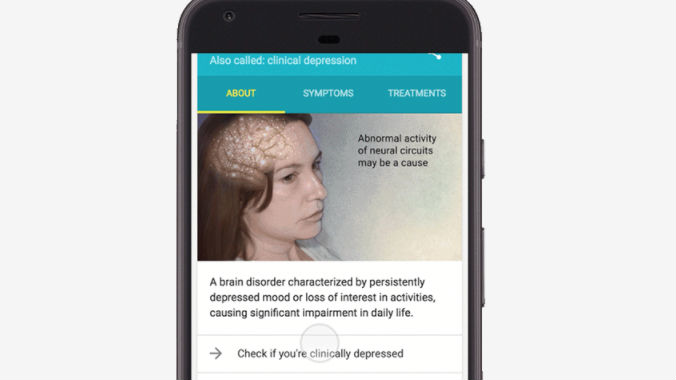
MANILA, Philippines – Google announced in a blog post on Thursday, August 24, Philippine time, that it launched a tool to test oneself for depression when one searches for "clinical depression."
The self-evaluation tool is called PHQ-9 or Patient Health Questionnaire 9, composed of 9 questions that gauge one's mental health, and one that Google says is a clinically validated screening questionnaire. For the initiative, the search giant also partnered with US-based mental health organization National Alliance on Mental Illness (NAMI). The partnership is to "ensure that the information shared in the PHQ-9 questionnaire is accurate and useful," says Google in their post.
When a person searches for "clinical depression," the PHQ-9 suggestion appears in the search results page's "Knowledge Panel," found in the top portion of the page that usually displays basic information on the topic searched. Users have the option of tapping the "Check if you're clinically depressed" link, which will then lead to the test. The test – which includes questions on one's energy level, appetite and pleasure in doing things – weighs what one's likely level of depression may be.
Not a tool for diagnosis
NAMI CEO Mary Giliberti clarifies in the blog post though that the test is "not meant to act as a singular tool for diagnosis" but rather is a tool to make one more aware of one's mental health. Giliberti suggests that the tool can be used as a first step towards proper diagnosis or something that will help one "have a more informed conversation" with a doctor.
Giliberti also shares the impetus behind the Google partnership. She says that in the US, 1 out of 5 Americans experience an episode of clinical depression in their lifetime but only 50% receive treatment. The average delay from the onset of symptoms to getting treatment is 6 to 8 years, she says. A partnership with a widely used consumer-facing tool such as Google's search engine boosts the chances that a person may be made aware of their current mental health.
The tool is also readily available online in various sites such as medical reference site Mdcalc.com and Mentalhealthamerica.net. – Rappler.com